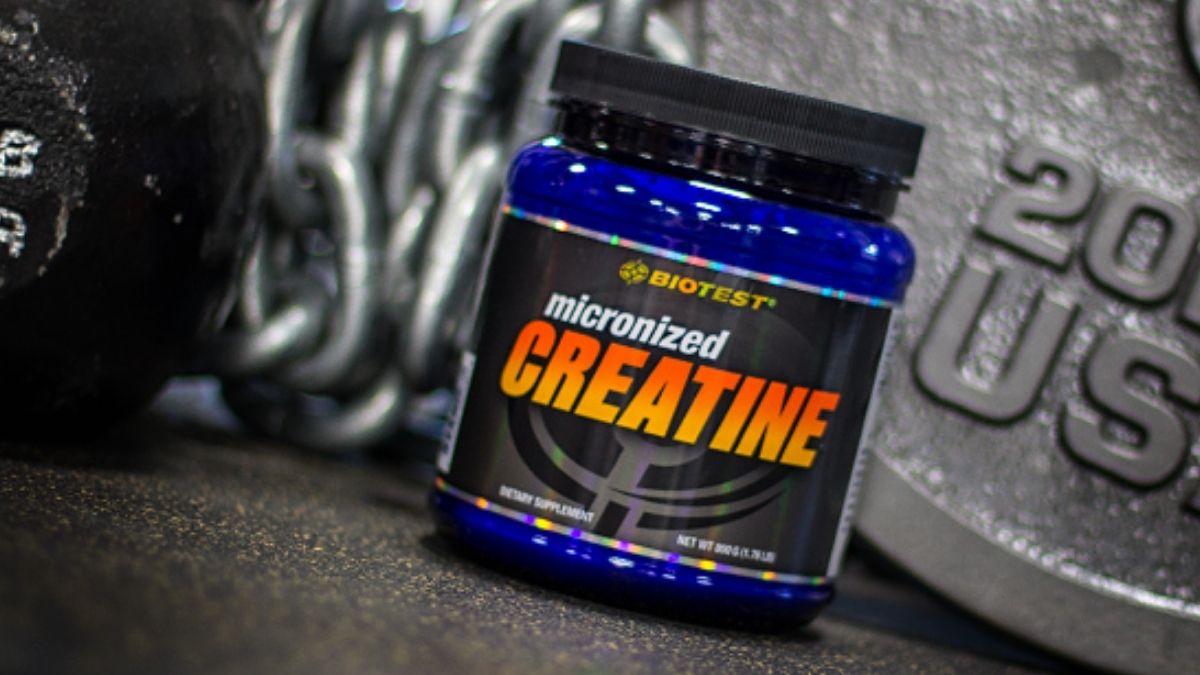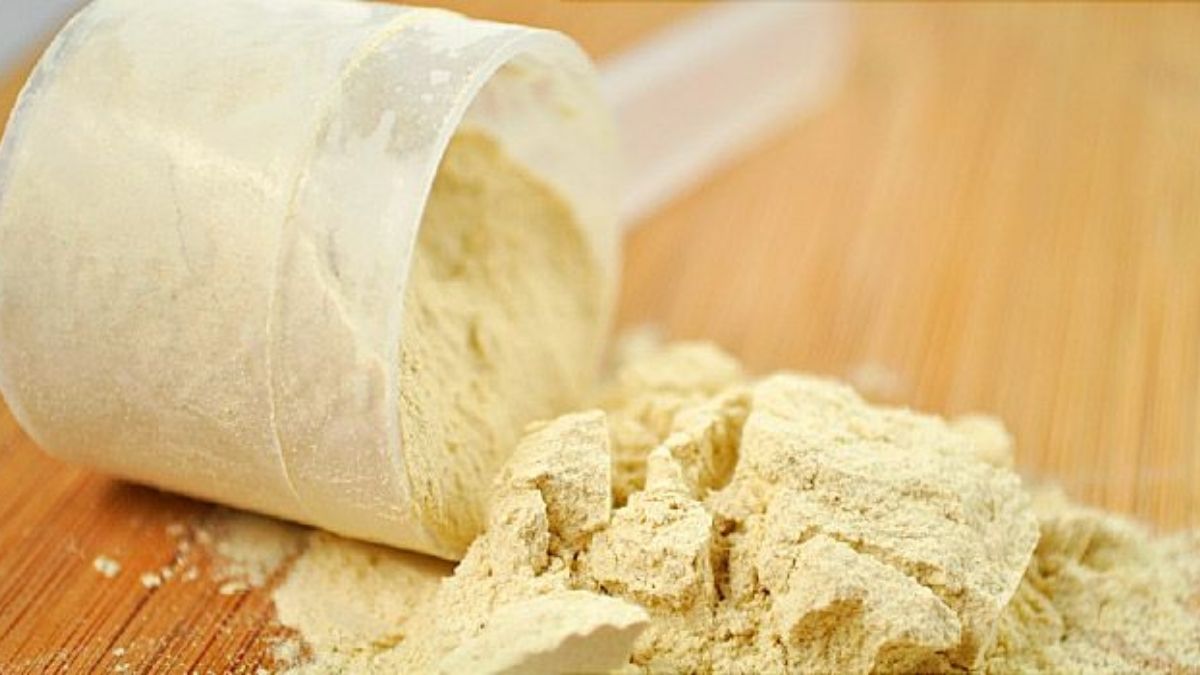Three amino acids, arginine, glycine, and methionine, make creatine in the body. Creatine is transformed to phosphocreatine (PCr) when the amino acids are mixed, providing an instant energy supply during high-intensity explosive exercise. Creatine comprises amino acids typically present in animal products like meat and fish. If you eat a vegetarian or vegan diet, you may be deficient in certain amino acids and thus deficient in creatine, necessitating supplementation.
Supplementing creatine may benefit high-intensity sports like rugby, football, or weightlifting. If you are a vegan or vegetarian, supplementing with creatine monohydrate may be beneficial because you may already be deficient in creatine. The most effective creatine supplementation approach is to load on 20g of creatine (4 x 5g per day), followed by a 5g per day maintenance phase.
What is Creatine?
Creatine (from the Greek areas, which means “meat”) is a natural substance found in the body that serves as an energy source during muscle contraction. The body’s creatine requirements are partially satisfied by creatine created by the liver and kidneys and creatine obtained from the diet. Creatine is found in animal-based meals such as red meat, milk, and seafood. As a result, vegans and vegetarians may consume less creatine than nonvegetarians daily.
- Creatine supplements are commonly used to boost muscle strength and athletic performance because creatine is thought to improve athletic performance.
- If you want to know if these supplements are safe for you, you should talk to your doctor.
- Skeletal muscles retain about 95% of the total creatine in the body (both internally produced and ingested from food or supplements).
- This creatine is essential for muscle action because it maintains a constant energy supply.
- The remaining 5% is present in various organs, particularly the heart and brain.
What are the Benefits of Creatine?
Athletes commonly utilize creatine supplements to improve their physical performance and strength. Various professional sports organizations, including the International Olympic Committee and the National Collegiate Athletic Association, have approved these supplements (NCAA).
Improving athletic performance: People that participate in sports like rowing, basketball, cycling, swimming, soccer, and high jump, to name a few, are big fans of creatine pills. It’s thought to help with exercise performance as well as post-workout recovery. Creatine aids in the growth of fat-free muscle mass, injury rehabilitation, and the adaptation of athletes to demanding training schedules.
Gain muscle strength: Creatine supplementation has been shown to boost muscle strength in younger and older persons. In older persons with age-related muscle loss or sarcopenia, creatine may help enhance muscle strength. It’s especially beneficial when used in conjunction with muscle-strengthening workouts.
May help manage neurodegenerative disorders: Creatine supplementation may help persons with neurological disorders, including Parkinson’s disease and muscular dystrophies, improve their symptoms, according to specific research.
Beneficial for inherited disorders of creatine metabolism or transport: Genetic diseases such as guanidinoacetate methyltransferase (GAMT) deficiency and arginine-glycine amidinotransferase (AGAT) deficiency prevent the body from producing creatine. In certain circumstances, creatine supplementation may help alleviate symptoms such as seizures, mobility impairments, and language challenges.
In some trials, creatine is helpful in diabetes, fibromyalgia, depression, poor bone mass (osteopenia), and chronic renal disease. However, there is insufficient scientific evidence to back up these statements.
Are Creatine Supplements Safe?
For healthy people, creatine supplements are deemed safe. However, it is essential to realize that the Food and Drug Administration does not control nutritional supplements in the United States. As a result, the quality, purity, and quantity of creatine in commercial supplements and the presence of any off-label or different substances cannot be assured. Before taking these supplements, you should talk to your doctor. Getting your doctor’s approval is even more crucial if you’re pregnant.
- Are you younger than 18 years old
- Are you pregnant or breastfeeding
- Have underlying health conditions, such as kidney disease, liver disease, bipolar disorder, or diabetes
- Are you taking any medications or supplements?
Creatine supplements may increase muscle mass and water retention, resulting in weight gain.
What are the Side Effect of Creatine?
There are some things you need to consider before taking creatine.
Not everyone can take all vitamins, no matter how safe they are. In the following conditions, you should see your doctor before starting to take creatine:
- People with a renal illness or who have had a kidney removed do not have the same filtering abilities. This is also true for persons who have a disease like diabetes that raises their risk of developing renal disease. Creatin has been linked to the worsening of renal disease. Your doctor may tell you that you can’t take any more supplements since your body can’t handle them safely.
- Supplements may not be safe for people who have had a liver problem or are receiving medicine for liver-related ailments. There is insufficient evidence to support the safety of ingesting creatine when pregnant or breastfeeding, and Pregnant women should avoid creatine as a precaution.
Some people have trouble processing supplements because their body’s filters, kidneys, and liver, aren’t in good shape. Before taking any supplements, see your doctor if you have a family history of kidney or liver illness. They can assist you in determining which supplements will be most beneficial to your body.
Talk to your doctor about adding a creatine supplement if you’re on any strength, performance steroids, or other performance-enhancing substances. Many strength supplements already include creatine, and adding more creatine to your diet could lead to overdosing. Creatine draws water from your body and stores it in your muscles, so stay hydrated when taking it. When exercising, have water on hand and exercise with caution in hot weather. To be adequately hydrated while taking this supplement, you’ll need to drink more water.
When to Take Creatine?
You may be wondering when to take creatine now that you know what it is and how it benefits the body. Is it better to take creatine before or after working out?
According to research, it’s preferable to take creatine right before or after your workout. The following were the findings of a test with two groups of persons ingesting creatine at different times:
- Creatine in the morning and evening – Participants in the trial who took creatine as a regular supplement (in the morning and evening) saw some improvements. Their muscle mass has grown, and they didn’t take creatine in the days leading up to a workout.
- Creatine is taken before or after an exercise — A different set of participants consumed creatine before or after a workout. They grew muscular mass faster than the first group.
According to this research, you should take creatine right before your workout to get the most out of it. Furthermore, compared to pre-workout supplementation, post-workout creatine may yield higher strength improvements.
What does Creatine do?
Creatine is trapped in the muscle and transformed into pure. PCR is a beautiful energy source for high-intensity activities like sprinting or lifting heavyweights. Creatine has also been demonstrated to increase lean muscle mass and speed recovery between sets, which are advantageous in these high-intensity sports.
‘Creatine Monohydrate’ is a frequent form of creatine supplementation. When supplementing your diet with creatine, it’s critical to train appropriately to get the most out of it. Creatine supplementation may not be desirable in sports where weight growth is a disadvantage (for example, running-based sports, weight-restricted sports, and swimming) because there is a more significant gain in lean body mass. This is because creatine causes water to flow through the cell membrane and into muscle, resulting in increased muscle fiber thickness and thus increased muscle mass.
Conclusion
It takes more than just working out to improve muscle tone and strength. Hydration, vitamin-rich foods, and relaxation days are all part of the plan. Supplements can also be included. Creatine-based supplements can help you gain muscle mass and strength. Creatine is best taken before or after a workout, according to research. When completing a high-intensity activity, creatine can help you prepare for huge bursts of energy.
Although creatine is the most popular supplement for strength training and has been proven safe in hundreds of studies, there are some precautions you should take. If you’re pregnant or have a renal or liver illness history, consult your doctor, and they’ll be able to tell you if supplements are suitable and safe for you.

